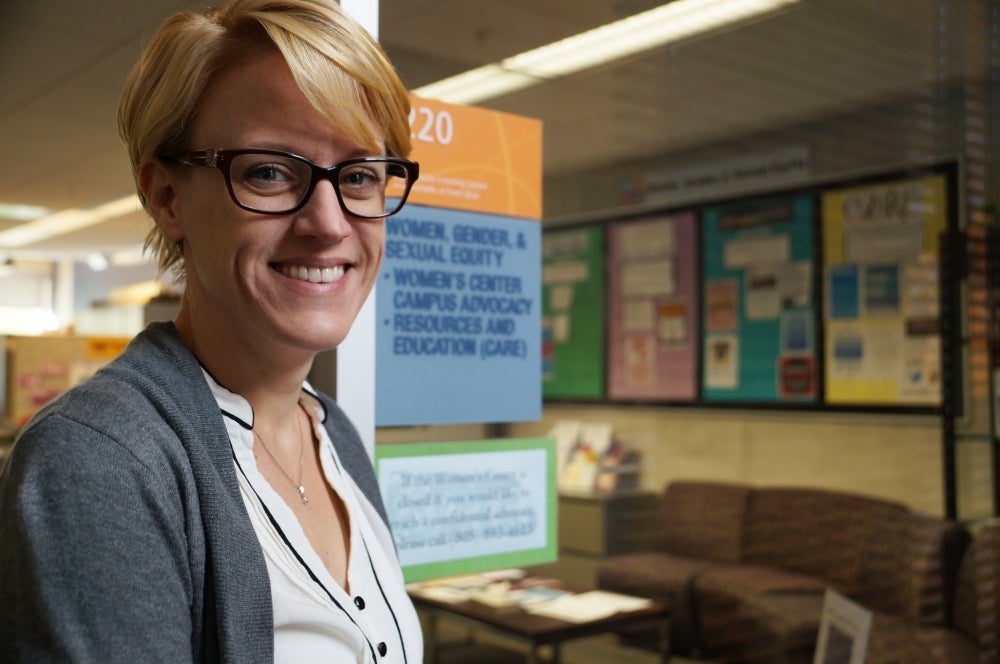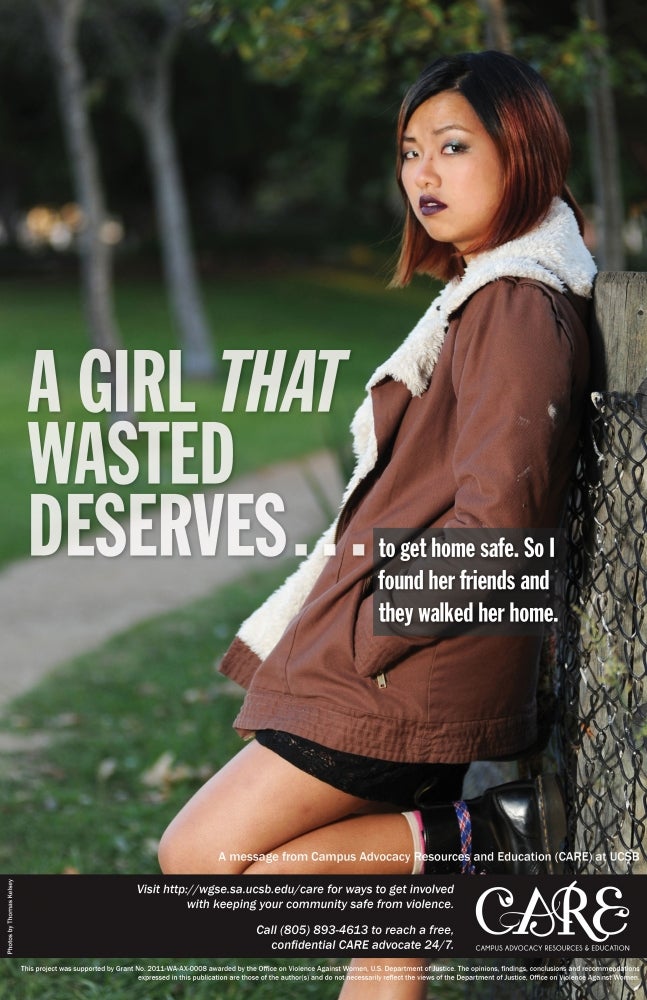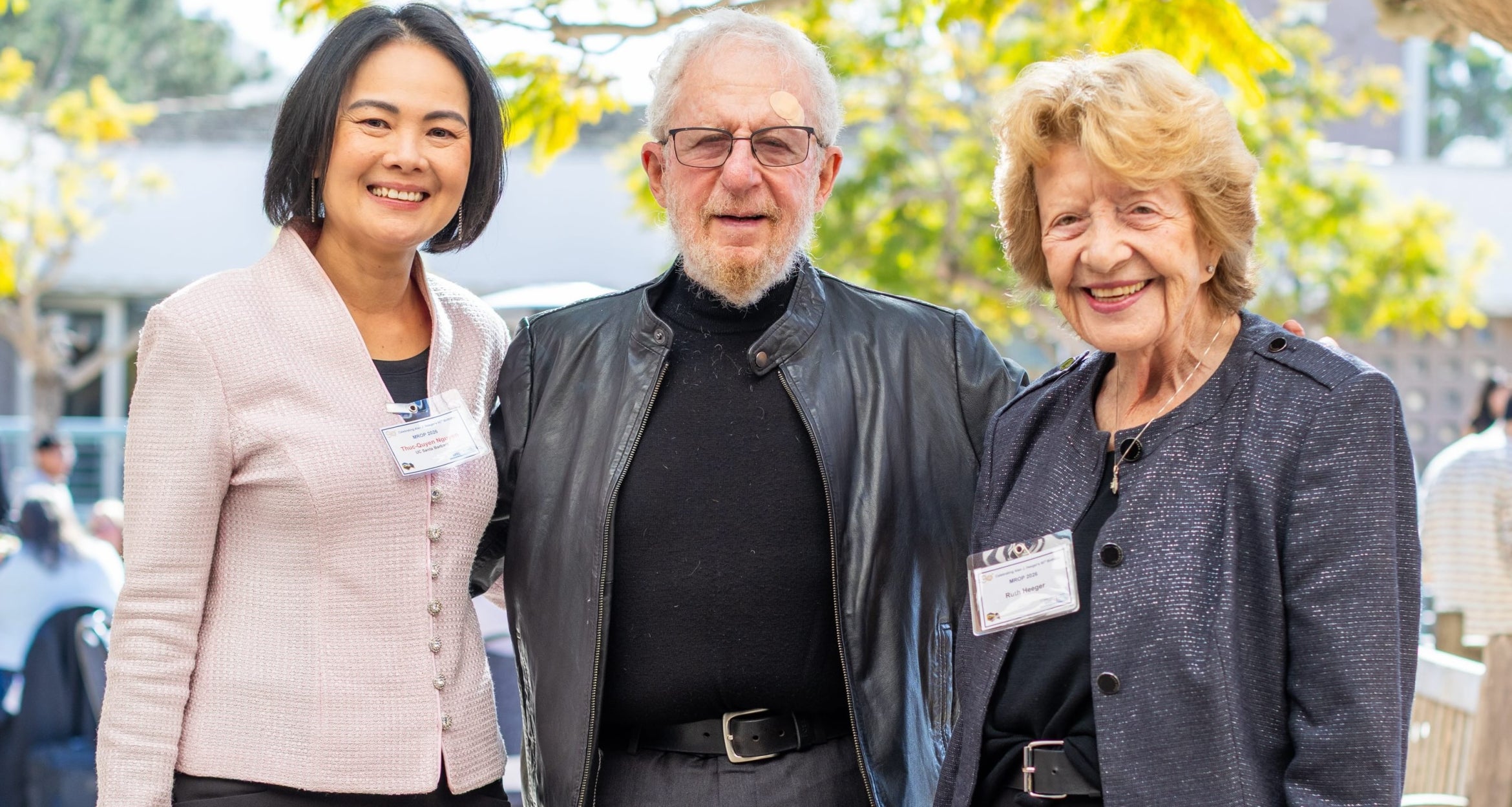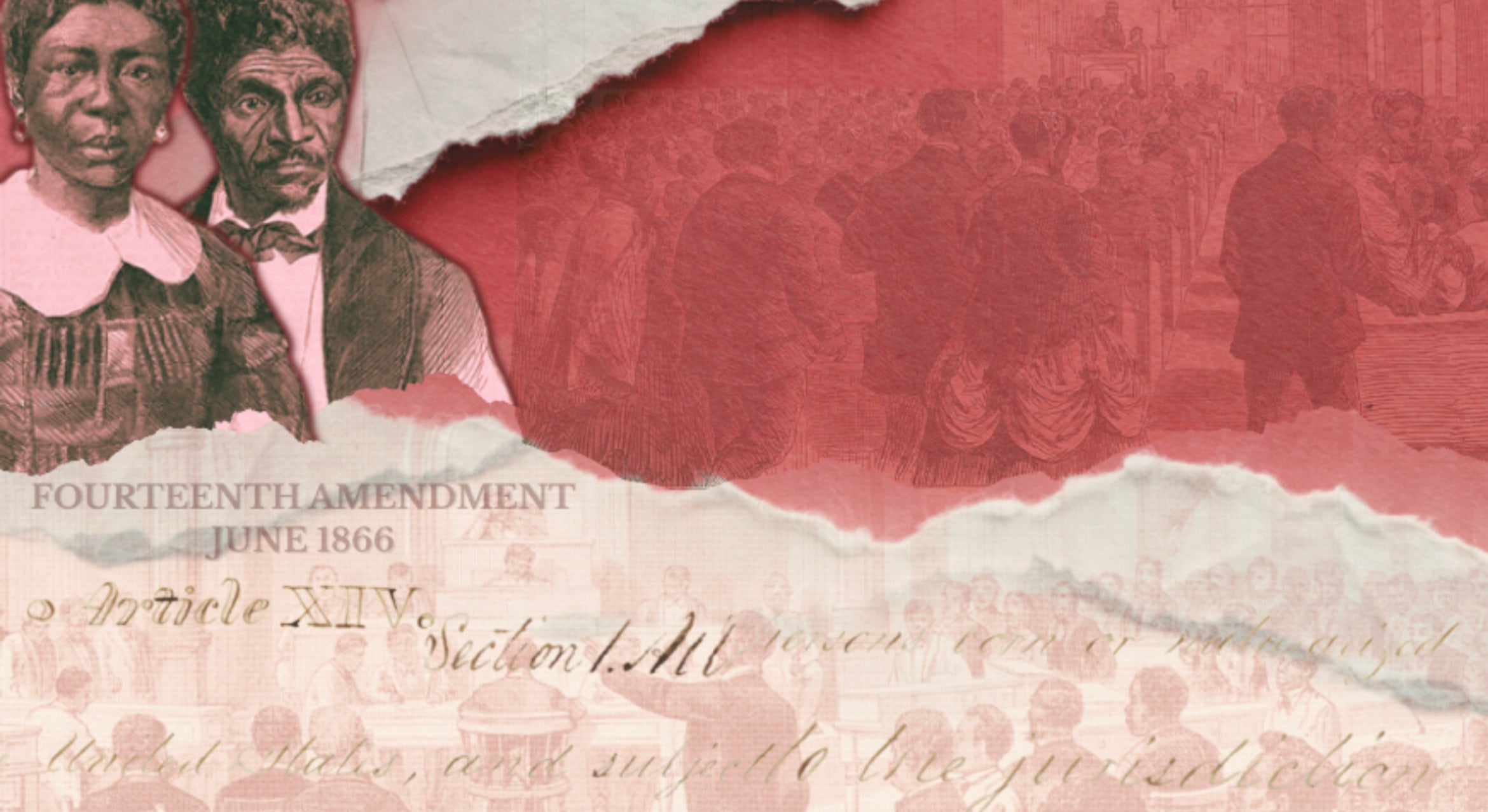You Are Not Alone
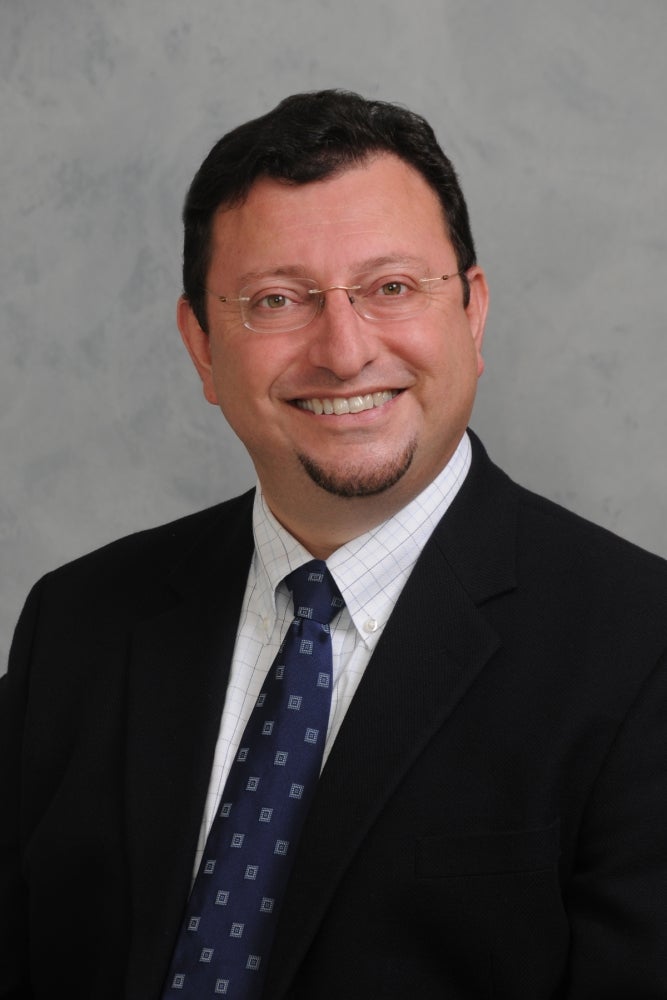
She tried for so long to handle it all on her own.
There was the criminal complaint. Was it moving forward? Had it stalled? She had no idea; it was almost impossible to get anyone to update her. And classes? She couldn’t keep up, failed a few. She feared she might soon have to leave UC Santa Barbara for good. But the greatest challenge of all? Trying to will herself back to some semblance of emotional wellbeing after a traumatic assault.
After nearly a year, it had become too much to bear.
And then she asked for help.
“Once she came to us, right away it was, ‘OK, from this point forward you don’t have to do any of this alone,’” Jill Dunlap, director of UCSB’s Advocate Office for Sexual and Gender-Based Violence and Sexual Misconduct, also known as CARE, recalled of one student (unnamed for confidentiality) who recently sought their services. “We will get you on the phone with law enforcement. We will get you academic accommodations, medical referrals. We will accompany you to hearings, legal proceedings. We are your best friends through these processes. Whatever you need. We will get you on the path, going in the right direction.”
The case is emblematic of the all-in, round-the-clock support services that CARE provides. With survivor advocacy its primary focus, the program also offers education and training for students, staff, faculty and the community at large. All are welcome at the office where CARE is more than a name; for Dunlap and her team, it’s an ethos.
Which is what makes CARE, in so many ways, the locus — and heartbeat — of UCSB’s response to sexual assault. And now it’s being used as a template for sister campuses across the University of California.
The advocacy model developed at UCSB has been adopted systemwide. As part of UC’s ongoing efforts to combat sexual assault and bolster its own response, every campus now has an advocacy office and at least one full-time advocate position (UCSB has five). In addition, UCSB, the other nine campuses and the UC system at large have each launched a dedicated website to provide key information about university support services and the steps UC is taking to address sexual violence.
“The University of California is actively engaged in efforts to combat sexual violence, including a systemwide task force on sexual assault and sexual violence, established by President Napolitano, to address this critical issue,” said Chancellor Henry T. Yang. “UC Santa Barbara has a robust sexual violence education, awareness and prevention program on campus that we are continually working to strengthen and grow. In the past year we have launched many new initiatives and added new resources and training for faculty, staff and teaching assistants under our CARE program. This will equip our campus to better communicate with our community about the issue, and to better serve community members who have been victims of interpersonal violence. We have also provided permanent funding to our Counseling and Psychological Services to hire an additional licensed counseling psychologist with specialization in interpersonal violence.
“We have made important progress, but we recognize that much remains to be done,” Yang continued. “Across the nation and especially on college campuses, sexual assaults are underreported, and our efforts to reach out to students and to raise awareness about this important issue will result in more students having the confidence and trust to report incidents, thus allowing authorities to take action.”
Reporting is already on the rise at UCSB, according to Ricardo Alcaino, Title IX coordinator and director of the campus’s Office of Equal Opportunity & Sexual Harassment/ Title IX Compliance (OEOSH/TC), where formal reports of sexual assault are filed and investigated. OEOSH/TC now receives about 48 reports of sexual assault per calendar year, he said, up from just six reports five years ago. CARE saw about 50 new cases in the fall 2014 quarter alone.
“The number of reports is up exponentially — and we want reporting to continue,” said Alcaino, whose office is getting a new response coordinator position through the UC initiative. “To me, success is closing the gap between the percentage of respondents who reported in the recent UC Climate Survey that they’ve experienced unwanted sexual contact, and those who actually make a complaint. The closer we get to that percentage, the better job we’re doing.”
A major difficulty in getting students to report incidents of sexual assault stems from a lack of understanding of the complaint and resolution processes — and the people who are part of them. It’s largely for that reason, according to Alcaino, that he and his team regularly advise survivors to speak with a confidential CARE advocate to discuss their concerns and review their options without triggering a report before they are ready.
“We depend on CARE a lot to make sure nobody falls through the cracks, because that’s the important part — that nobody is left out there feeling that they have nowhere to go, or feeling helpless,” he said. “We want them to know there is a resource, there is a recourse and that they have some control over the situation. That’s CARE. They’re experts in that area. They’re trained. They’re certified. And they’re great.
“When complainants come to my office, we often recommend they go to CARE first so they can fully unpack their concerns before deciding what they wish to do to address their situation, and whether to come back here or not,” Alcaino added. “We want to make sure their immediate issues are addressed, as personal safety is sometimes the most pressing concern. Our part comes later.”
For those who do file a formal complaint with the campus, part of that recourse is adjudication through the Office of Judicial Affairs. Anyone assaulted by a UCSB student can pursue a case with Judicial Affairs — whether they are affiliated with the campus or not. Any sanctions imposed on perpetrators found responsible for the allegations against them are academic in nature, according to Angela Andrade, UCSB’s associate dean of student wellness services.
“They all relate to whether a student is allowed to continue in school and if they are, whether restrictions are put on them,” Andrade explained. “A sexual assault is a really serious violation both of our rules and of an individual. And in these cases the entire UC is considered one campus, so a suspension or dismissal is from the system, not just UCSB.”
It is also the responsibility of the Office of Judicial Affairs to ensure the due process rights of any student accused of sexual assault or any other conduct code violation.
The increase in reporting is also translating into bigger numbers for Judicial Affairs. It’s a trend that Andrade attributed not only to growing trust in the process, but also, as the issue gains widespread attention, to decreasing stigma around sexual assault.
“It’s on the national discussion board, and that’s great,” Andrade said. “Nobody asks to be sexually assaulted. It’s not a survivor’s fault. How outrageous is it that someone who is the victim of a crime should feel shame? That paradigm has to be shifted and that’s what we’re working on.
“For students, this is probably the most important issue we have right now,” she added. “This is an area that can impact mental health because a survivor is impacted on so many levels. I think this is the next big, difficult issue on our plates, and I think we’re up to the task.”
This should help: New for UCSB this year — and unique across the UC — is the location of a UC Police Department detective, full-time, in the CARE office. The female investigator is based at the advocacy center, providing a consistent point of contact to survivors tracking criminal cases, and offering an accessible means of reporting for those who might otherwise find the prospect frightening or overwhelming.
UCPD Chief Dustin Olson and CARE director Dunlap, who is on the UC president’s task force, worked together on a grant to pay half of the detective’s salary; Olson’s department is picking up the rest of the tab.
“That’s our commitment to help CARE, the students and all the survivors who show up there,” Olson said. “We are pioneers in this to some degree. We’ll evaluate next year to see if we were able to be more effective in response, evidence gathering, prosecution and being more survivor-oriented as well. Trying to keep the survivor from having to retell the events over and over — that’s one piece of it — and I’m hopeful it will be a benefit in many ways we haven’t even thought about. The UCPD wants to make sure we get it right. If there are things we can or should be doing, we certainly want to know.
“The piece that Jill brought along, and helped us see is so important to survivors, is making sure students understand the services and system here on campus,” Olson added. “She’s been very accommodating. She and her staff will respond, come meet with survivors on weekends, nights. It makes complete sense for us to call CARE on these cases. And it’s worked out well. Jill has been an exceptional colleague. She’s just amazing and very good at what she does there. She’s made a lot of strides in a positive direction.”
The collaboration between UCPD and CARE is indicative of the “we’re all in this together” approach that permeates the myriad departments, offices and people within the UCSB community working directly to respond to issues and incidents of sexual assault.
It’s that very spirit, Dunlap said, that will foster true progress toward prevention.
“When there is enough attention focused on it that students recognize it’s a problem and are taking proactive steps to be part of the solution — that’s when I’ll know we’ve turned the corner,” she said. “When everyone recognizes it’s a community problem and we all share responsibility for ending it, when we all admit that we all play a role in stopping it.”
On a middle shelf of the jam-packed bookcase that occupies one corner of her office, tucked alongside some paperbacks, Dunlap keeps a modest stack of thank-you cards she has received from former CARE clients. In her seemingly tireless advocacy for sexual assault survivors, and education for everyone else, there are days when she needs to be reminded why she does it.
“When I’m having a particularly hard day I will look through those cards, open them up and remember: I was there for that person and I made a difference for them,” she said. “And that’s what keeps so many of us going. We celebrate the accomplishments and progress that our students make and sometime they thank us and that can make your whole week. We do it because that’s what we do, but when students thank you for it, it’s like YES. I’m so glad they feel good enough about what we do for them that they circle back to us and tell us that.”
